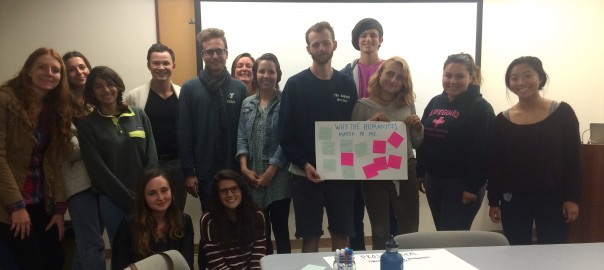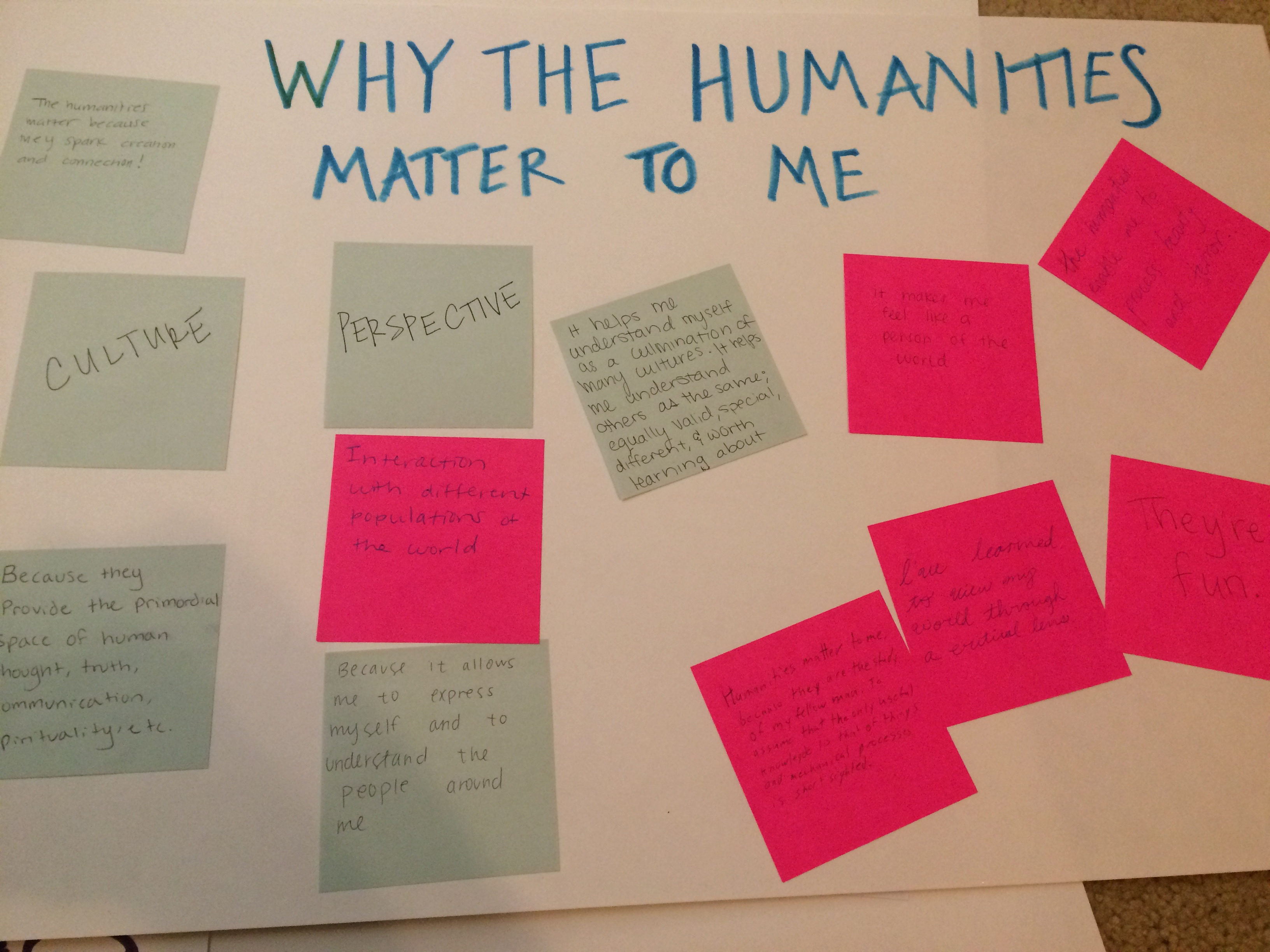Knowing the Shout Out for the Humanities student contest deadline is fast approaching—March 1, 2016—I led a Creativity Workshop for the UCSB Catalyst literary magazine. The Catalyst is a collective of undergraduate students who produce an incredibly artistic quarterly publication. They are led and organized by one professor and graduate student each year; Brian Donnelly and Jeremy Chow are the respective leaders this year who generously allowed me to lead the workshop during one of their regular meetings.
The following is an example of what a Creativity Workshop can look like, which any workshop hosts are welcome to freely adapt.
First, I list the some of the slides I used. Second, I detail one way to engage students in the conversation. Third, I write about some of the conclusions I drew from the workshop.
- The “Crisis in the Humanities”
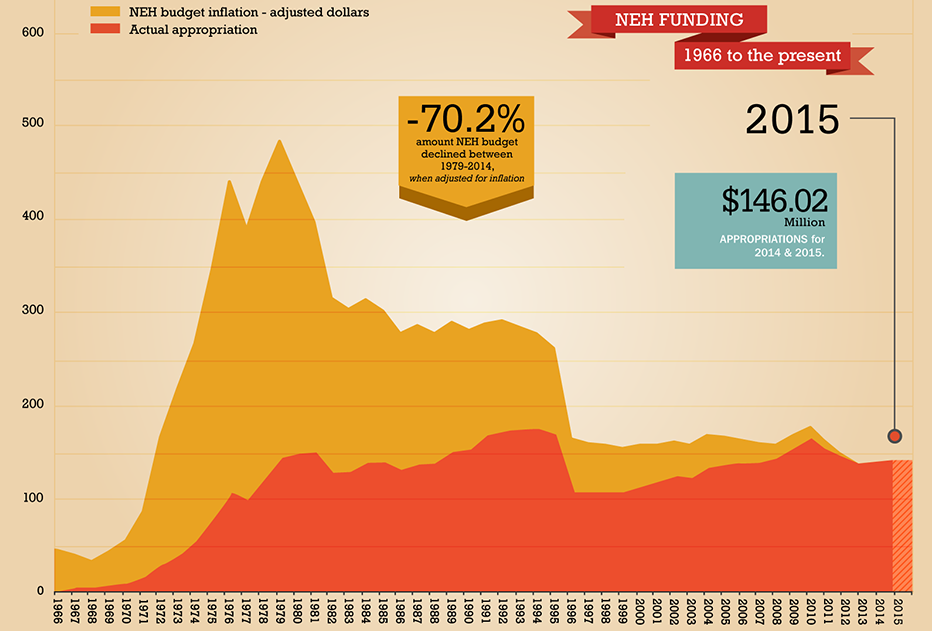
While I didn’t begin with this slide in my own Creativity Workshop, I will next time. Explaining why the humanities matter closely connects to the “crisis” in the humanities. This visualization, produced by the National Endowment for the Humanities, makes visible the increasing funding cuts in the humanities (The visualization is in the Contest Kit).
I would start with this visualization is because of a student’s question at the end of my workshop. She asked me, “Who is so against the humanities? Why would articulating the importance of the humanities matter?”
This question led to a series of interesting conversations among the other students. One student said that, as a Chinese American student, she felt continuous pressure to justify her choice to major in English. Another student expressed how she tacitly understood that her family and friends considered the humanities inferior to STEM disciplines. It’s hard, another student said, when humanities students do not have clear answers to the question, “What are you going to do after you graduate?”
I thought this slide, and the ensuing conversation on funding cuts in the discipline, led to an incredibly relevant conversation that every humanities major needs to consider.
The humanities crisis is both real and perceived. It’s real because funding for the humanities is declining. It’s real because many–including myself–feel pressure to defend the humanities to broader publics. It’s real because news outlets continuously write about how the humanities are in crisis. It’s perceived, however, because the humanities is and always will be incredibly relevant to cultural and historical knowledge, the study of oral and written languages, teaching writing and broader communication skills, studies of literacy, interdisciplinary research on how literature influences law and policy, and many, many more important humanistic pursuits.
2. Shout Out for the Humanities Contest!

After discussing the relevance of articulating the importance of the humanities, the focus of the contest—to produce creative work that expresses why the humanities matter (e.g., individually, regionally, locally, and globally)—captured a great deal of interest.
We discussed the contest prizes:
- Undergraduate Students: 1st US $1,000 — 2nd US $700 — 3rd US $300
- Graduate Students: 1st US $1,000 — 2nd US $700 — 3rd US $300
…and we also talked about how winning the contest would give the student a) a publication b) a clear way to articulate the importance of the humanities to others c) an award
3. Why do the humanities matter to me?

I put several definitions of the humanities on my slides, and we read them aloud. I then asked the students to individually write about why the humanities matter to them, and to share their responses with a neighbor. Finally, I passed out post-its to the group and asked them to write down in a sentence or two why the humanities matter. Here are a couple of their responses:
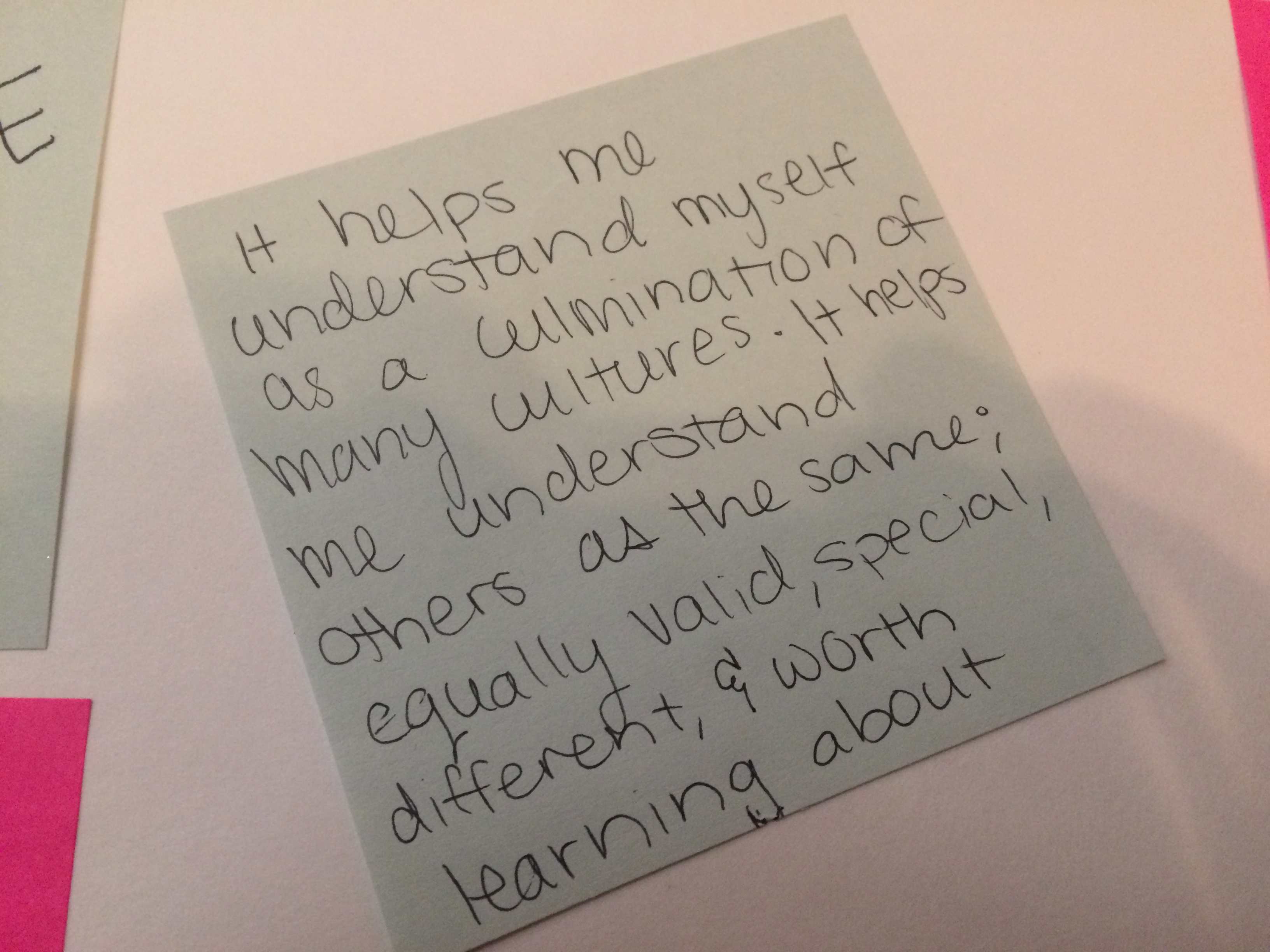

We put their post-its on a poster board at the front of the room:
4. Design Groups:
Jeremy and Brian had already informed me that the Catalyst group regularly works in design groups to brainstorm ideas. Knowing this, I put them in their already established groups to come up with an idea for how they could make their earlier responses on why the humanities matter into a creative project.
To get them started, I led a tutorial on Twine, one of the easiest, most intuitive digital tools from the Contest Kit. Twine is made up of interactive passages that give the reader narrative choices through hyperlinks. My example asked the reader to imagine how the study and pursuit of humanistic goals influences the way we consider people who are unlike us. In Twine, the author can create choices for the reader by enclosing a choice inside four brackets (i.e., “[[ ]]”). The words inside the brackets form a hyperlink when author publishes her work.
My Twine essay asked: What is at stake when we do not study the humanities as a discipline in the [[university system]]? What will happen to creativity, interdisciplinarity, and global knowledge capacity? What will happen to [[civil public discourse]]?
Readers, then, can choose if they want to follow the hyperlinked words “university system” or “civil public discourse.” Their choice determines the focus of the essay they want to read. There are so many ways an author can use Twine to interactively engage with readers. My example was a quick look into its possibilities.
After my Twine tutorial, the students brainstormed what they wanted to do.
4. Conclusions
I left some time for discussion, and received some eager questions about the contest:
“What are the best entries you’ve seen so far?”
“Can we submit multiple entires?” (Answer: no, individuals and teams are limited to a single submission).
“Why do the humanities matter to you?”
“How has articulating the importance of the humanities served you in your own work?”
(I said: Articulating the importance of my B.A. degree in English was incredibly significant to landing my first job out of college as Proposals Administrator for an engineering company in the bay area. Today considering the importance of the humanities gives me energy and ideas for leading courses and workshops on writing and literature).
5. We took a group picture
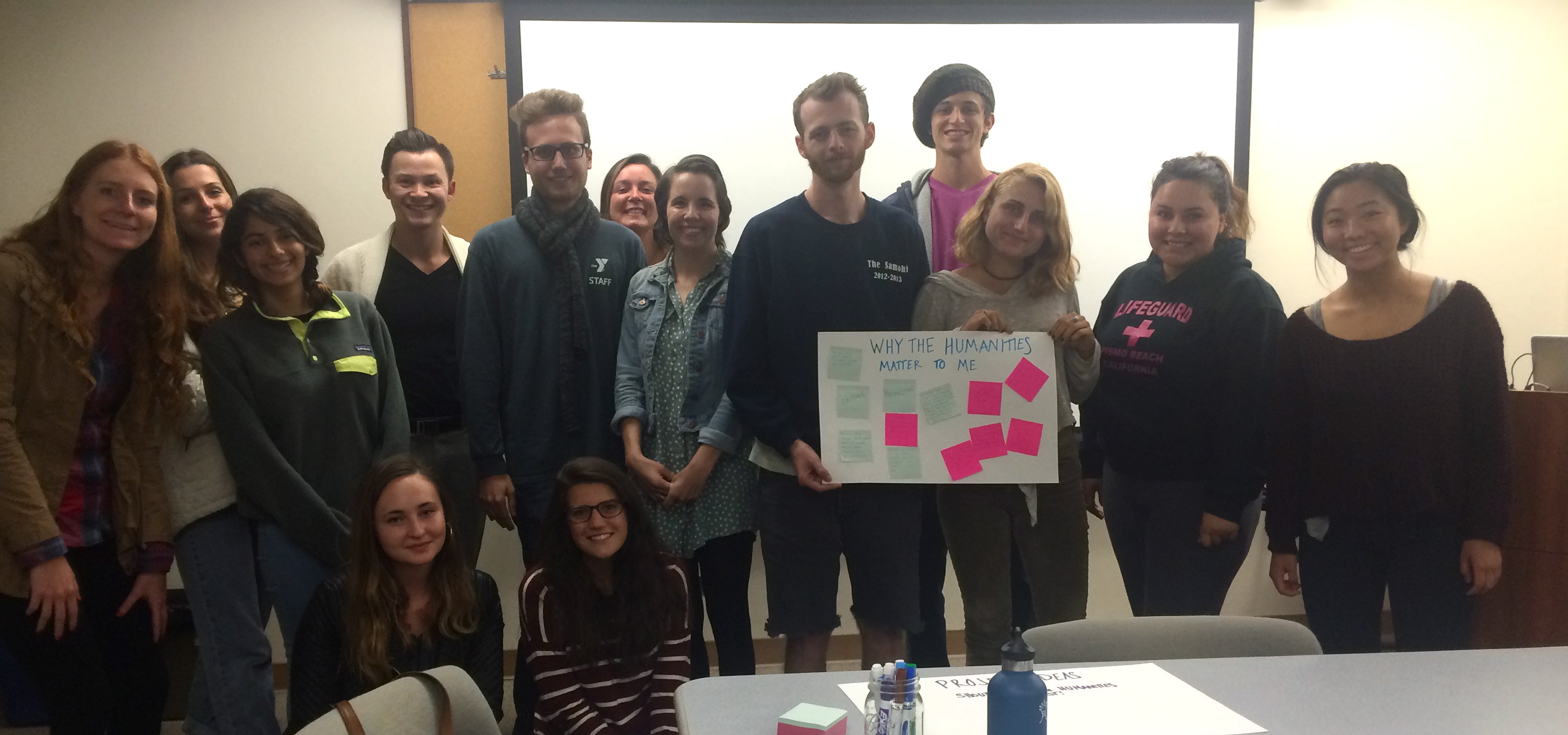
Please do not hesitate to let me know in the comments section if you would like to see my slides or workshop plan. Good luck to future workshop hosts!
Ashley Champagne is a Ph.D. Candidate at UC Santa Barbara and Lead Research Assistant for 4Humanities.org.
